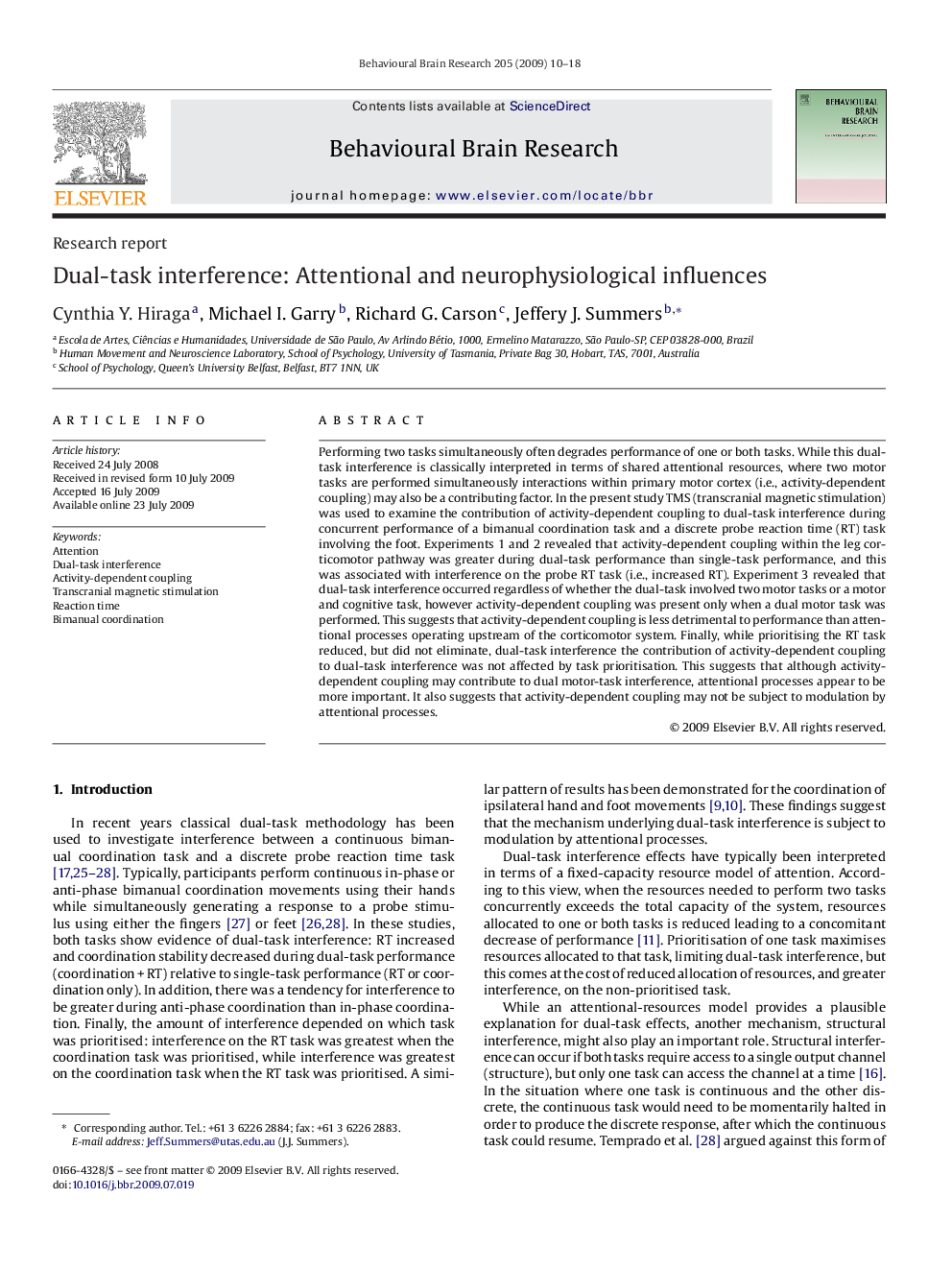| Article ID | Journal | Published Year | Pages | File Type |
|---|---|---|---|---|
| 4314503 | Behavioural Brain Research | 2009 | 9 Pages |
Performing two tasks simultaneously often degrades performance of one or both tasks. While this dual-task interference is classically interpreted in terms of shared attentional resources, where two motor tasks are performed simultaneously interactions within primary motor cortex (i.e., activity-dependent coupling) may also be a contributing factor. In the present study TMS (transcranial magnetic stimulation) was used to examine the contribution of activity-dependent coupling to dual-task interference during concurrent performance of a bimanual coordination task and a discrete probe reaction time (RT) task involving the foot. Experiments 1 and 2 revealed that activity-dependent coupling within the leg corticomotor pathway was greater during dual-task performance than single-task performance, and this was associated with interference on the probe RT task (i.e., increased RT). Experiment 3 revealed that dual-task interference occurred regardless of whether the dual-task involved two motor tasks or a motor and cognitive task, however activity-dependent coupling was present only when a dual motor task was performed. This suggests that activity-dependent coupling is less detrimental to performance than attentional processes operating upstream of the corticomotor system. Finally, while prioritising the RT task reduced, but did not eliminate, dual-task interference the contribution of activity-dependent coupling to dual-task interference was not affected by task prioritisation. This suggests that although activity-dependent coupling may contribute to dual motor-task interference, attentional processes appear to be more important. It also suggests that activity-dependent coupling may not be subject to modulation by attentional processes.
